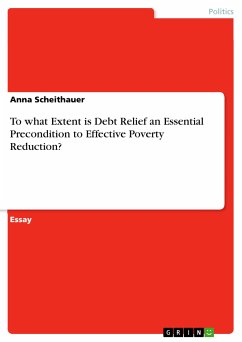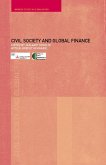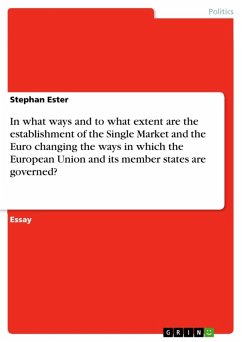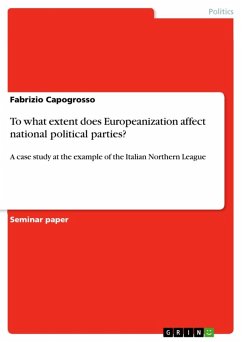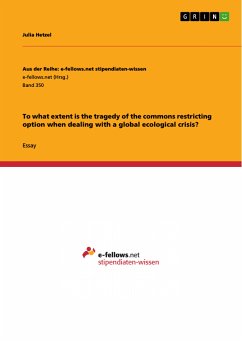Essay from the year 2015 in the subject Politics - International Politics - Topic: Development Politics, grade: 70 (Distinction) UK System, University College London (School of Public Policy), language: English, abstract: In this essay I have argued that the relationship between debt relief and poverty reduction is contingent on the relationship between conditionality and creditor-debtor responsibility. Doing so, I have focused on third generation conditionality of the Post Washington Consensus, which ties debt relief to the integration of poverty reducing policies. It is based on the idea that conditional debt cancellation will lead to policy improvements, which will boost investment and social expenditures, and consequently lead to economic growth and poverty reduction. (Dijkstra, 2008) Doing so, I have concentrated on the political economy determinant of debt relief, asymmetric information, as it overshadows debt-overhung, crowding-out, and institution theory by far. (Johansson, 2010) I have clarified in the first section of the paper why this is so and have made reference to the broader debate. Asymmetric information - a situation, where one party in a transaction process has more or better information than the other (Bebzcuk, 2003, xi) - is also relevant with view to my claim being based on the premise that conditionality leads to adverse selection and moral hazard (Dijkstra, 2008), two classic examples of information asymmetry. In this sense, I have used the Enhanced Highly Indebted Poor Country Initiative (HIPCI II), which was launched by the IMF and World Bank (WB) embodying a major instrument of development policy linked to the realization of the Millennium Development Goals (MDGs) to illustrate how conditionality in debt relief triggers problems of adverse selection and moral hazard and, in turn, undermines poverty reduction (Dijkstra, 2008). I have concluded that due to the absence of a legal framework to govern activities of debt relief and commercial lending (Pettifor, 2007, 138) as well as the lack of acknowledgment to make them a matter of shared responsibility by creditors and debtors alike, policy conditionality will inevitably lead to adverse selection and moral hazard rendering deb relief not more than "a necessary but insufficient condition" (Berensmann, 2004, 321) for poverty reduction.
Dieser Download kann aus rechtlichen Gründen nur mit Rechnungsadresse in A, B, BG, CY, CZ, D, DK, EW, E, FIN, F, GR, HR, H, IRL, I, LT, L, LR, M, NL, PL, P, R, S, SLO, SK ausgeliefert werden.

